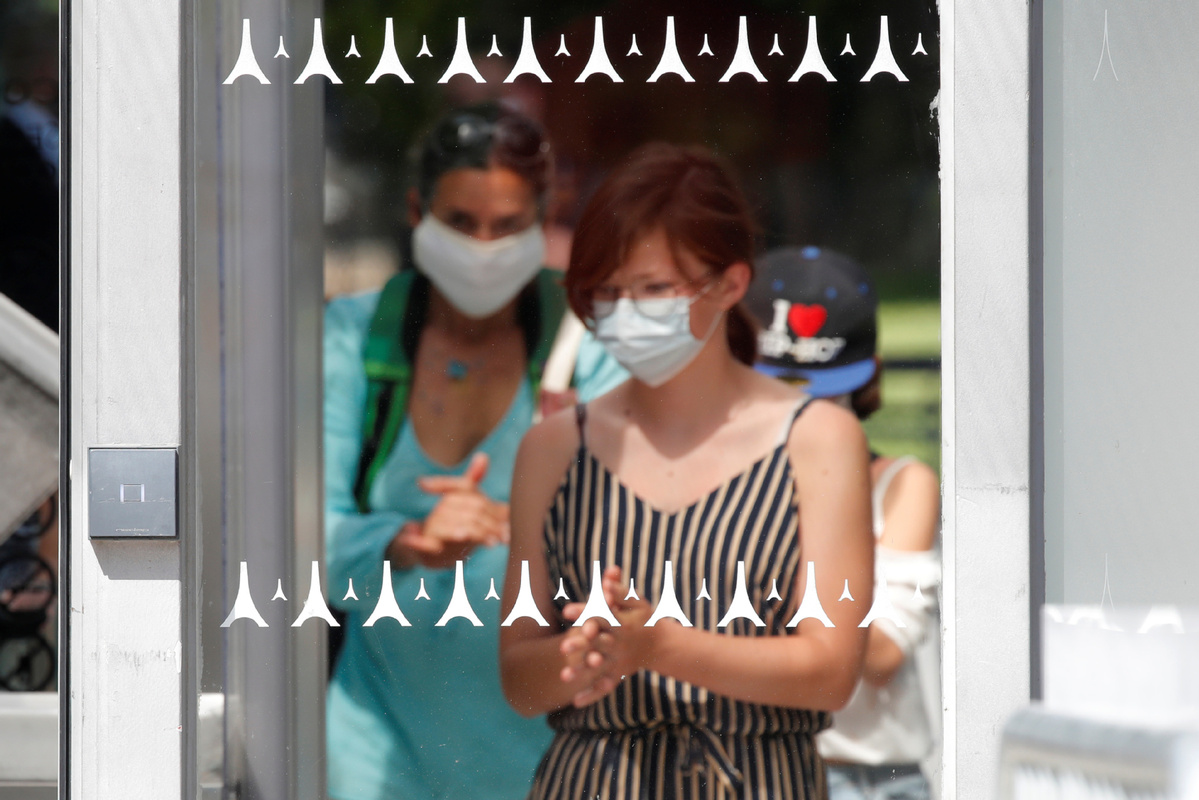Germany, France shore up aid to WHO
China Daily | Updated: 2020-06-27 07:23
World body warns of surge in cases as virus takes hold in a few populated countries
France and Germany offered political and financial backing to the World Health Organization in its fight against the coronavirus on Thursday, with Berlin saying it would give a record half a billion euros ($560 million) in funding and equipment this year. The tacking came as the WHO warned that several European countries were also facing dangerous upticks in new infections.

WHO chief Tedros Adhanom Ghebreyesus said that the agency, criticized by the United States for being slow off the mark in tackling the pandemic, was getting the support it needed and that the talks with members had been "very productive".
"We are getting today all the support we need, politically and financially. Both Germany and France are longstanding friends of the WHO and global health," Tedros told a news conference at WHO headquarters in Geneva.
US President Donald Trump said last month that the US was cutting ties with the WHO, but he has still not formally notified the UN agency.
The US is the biggest overall donor to the Geneva-based WHO, contributing more than $400 million in 2019, roughly 15 percent of its budget.
"Isolated national answers to international problems are doomed to fail," German Health Minister Jens Spahn said, as he announced the additional donation of funds and medical equipment to WHO that would take Germany's total support to 500 million euros this year, the "highest amount ever", as it assumes the EU presidency.
"We need a strong, efficient, transparent and accountable WHO today more than ever," Spahn said.
France said it would give 90 million euros to a WHO research center in Lyon as well as make an additional contribution of 50 million euros.
"I truly believe the world needs, more than ever, a multilateral organization," French Health Minister Olivier Veran said. "I believe the world cannot get rid of partners. We need a global answer (to the virus) and only the WHO can provide that answer."
In Europe, WHO regional director Hans Kluge warned that in 11 nations, "accelerated transmission has led to very significant resurgence that if left unchecked will push health systems to the brink once again in Europe".
Poland, Germany, and Spain recently saw a resurgence of COVID-19 clusters in schools, coal mines, and food production facilities, according to Kluge.
In Britain, Health Secretary Matt Hancock warned that the government has the power to close beaches and other public spaces amid growing concerns over the adherence to social distancing rules.
Huge crowds on English beaches on Thursday prompted the concern. Trash bins overflowed, extra police were called and the rural roads gridlocked by beachgoers now have signs stating the area is full.
15,000 deaths in India
Meanwhile, a record daily increase in India on Friday pushed the country's caseload toward half a million, and other countries with large populations like Indonesia, Pakistan and Mexico grappled with large caseloads and strained healthcare systems.
India, which has the world's second-largest population, has seen regular record daily increases. The 24-hour spike of 17,296 new infections reported on Friday raised the national caseload past 490,000, including 15,301 fatalities. Separately, the Indian Railways delayed the resumption of regular train services by more than a month, until Aug 12.
In India and in neighboring Pakistan, government leaders have resisted new restrictions, citing economic concerns.
Indonesia, the world's fourth-most populous country, passed 50,000 cases on Thursday, with at least 2,620 deaths, the highest number of cases and fatalities in Southeast Asia. That's up from just two positive cases in early March.
And Mexico pushed past 25,000 reported coronavirus deaths and 200,000 confirmed cases on Thursday, as the treasury secretary said he tested positive and would self-isolate while working from home.
On Wednesday, the UN labor agency appealed to governments to support tens of millions of migrant workers forced to return to their homes due to the coronavirus pandemic only to face unemployment and poverty.
Governments should include returning workers, many of whom had lost jobs overnight, in their social protection measures and reintegrate them into national labor markets, the International Labor Organization said in a report.
There are an estimated 164 million migrant workers worldwide, nearly half of them women, accounting for 4.7 percent of the global labor force, according to the ILO. Many work in healthcare, transport, domestic work and agriculture.
Their remittances are key for their families and economies back home, said Manuela Tomei, director of the ILO's conditions of work and equality department, citing a report from the World Bank that a $100 billion drop in remittances was forecast by the year-end.
Agencies, Xinhua and Edith Mutethya in Nairobi, Kenya contributed to this story.
























